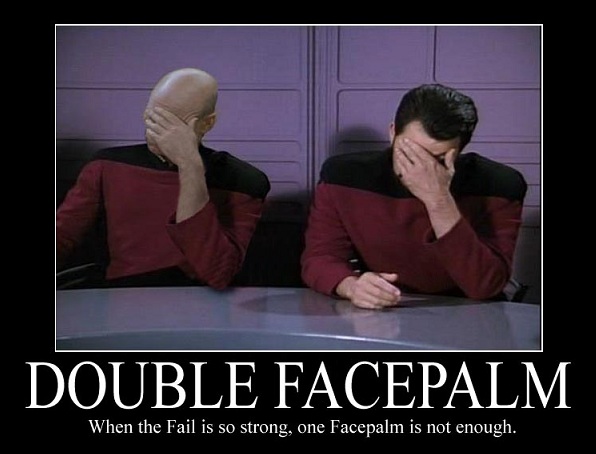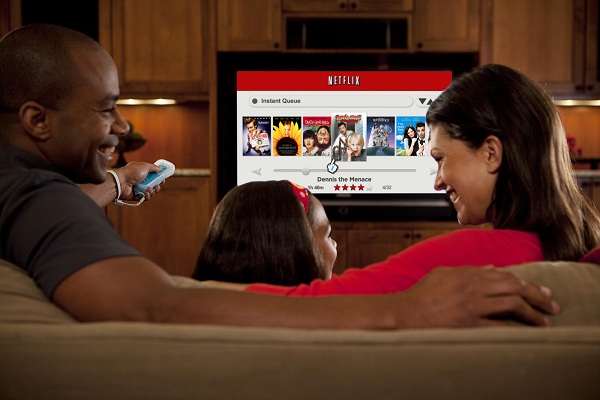Unlike other ‘old media’ establishments like newspapers or the music industry, the movie business has been hit less dramatically by the rise of the web – despite the fact that piracy is rampant.
Even though revenues from DVD sales have continued to decline, box office receipts have, at the very least, kept up with inflation. Unlike the catastrophic losses at places like Universal Music, people who make films are still doing relatively okay.
But that’s not to say there isn’t trouble ahead. In fact, as Paidcontent reports a recent study put out by PriceWaterhouseCooper suggests the movie biz might be in some serious trouble. Pirates, it tells us, are willing to pay no more than $3 for a downloadable movie and no more than a buck for a TV show.
So much for those plans to charge $20-25 a pop to watch a movie on VOD a month or so it comes out in the cinema.
But despite the doom and gloom of the Paidcontent article, there’s a silver lining here: the movie industry can learn from how pirates think. And in doing so, they just might be able to save – if not entirely preserve – their massive, lucrative business.
Why the Biz Went ‘Wrong’ (And How Pirates Got it Right)
Movies – particularly their pricing – have always been based on the perceived value of an experience. A movie was worth 5 bucks to see at the cinema – then 10 bucks, now (in some places like New York) even as high as fifteen. People were happy to spend that money not just because it was the only way to do it, but because the experience of a big screen, a communal atmosphere and fancy surround sound made it worth it. It was a night out with friends.
One cannot make the argument that watching movies at home changed this, because box office revenues went up with the advent of the DVD.
But what has gone wrong is that piracy reshaped the value of a film. Now, while a lot of movie execs will claim that this is about entitlement, or a devaluing of ‘art’, piracy did something else: when you can download 50 movies in a month, essentially for ‘free’ – if not, ya’ know, legally – you are also struck by the fact that most of them… suck.
This is to say: the more you are exposed to the products of the film industry, the more your realize that only, oh, 1 in 10 films is worth paying full price for and maybe 1 or 2 more are worth paying 5 or 6 bucks to rent. The rest are generally things you might watch on TV – or, if you’re bored, catch on Netflix. By doing away with scarcity, the value of the experience has gone down, in large part because most films, despite their huge budgets and flood of buzz, are throwaway entertainment.
It’s not that piracy ‘devalued’ film. Hollywood already did that for us. All piracy did was to allow large numbers of people to, through comparison, witness that most films aren’t really worth your time – or your money.
Yet, another lesson loomed, that didn’t quite have to do with the value of content. It was about how to sort and watch all of that content once the web so drastically opened us to.
A New Definition of Value
But at the same time, a second parallel, and much more hopeful thing was occurring. That thing was called Netflix.
See, as people became more and more accustomed to way in which the web can produce a glut of content, consumers – even pirates – realized that were also willing to pay for certain things. In fact that PWC study suggests that pirates also use legit streaming sites in addition to pirating. That’s significant because it means the flow of all kind of content just merges into one large stream online. And really, it’s only the very top stuff that stands out.
But ‘good stuff’ isn’t the driving factor when it comes to payment. It was about an experience. Convenience was a big one, and cloud access another. Interoperability on various sorts of hardware was a big plus and it meant, instead of transcoding a film to play on your mobile device or game console, you just clicked play and you were off.
Put quite simply, the content created by the movie and TV industry dropped in value, while the frame and context it was presented in rose in value. Suddenly, the thing that made money was not a rental on some 10 year old movie – it was a service that packaged thousands of older movies and made them super easy to watch.
Let’s say this another way: piracy reshaped how we think of content and taught us to value the delivery rather than the content itself. This was not due to the way in which ‘the web destroys culture’ or ‘devalues art’ but, rather, because the expansion of content choice through, yes, piracy, showed us what is important to us is the ease and convenience of legitimate services and the algorithms with which they recommend things.
Pirates didn’t destory the movie industry, they laid bare its weaknesses – yet at the same time, showed a new strength: legit is just easier.
The Future of Movies at Home
The movie industry is convinced of one simple proposition: people must pay a set price for one piece of content. $30 for a Blu-Ray, $20 for a DVD, $6 for an HD rental and so on.
But their secret has been laid bare by pirates: most movies aren’t worth paying much, if anything for, because they are of the ‘watch-and-forget’ sort. Now, people still like watching those. We all like to just veg out on the sofa and watch something mindless.
But piracy has taught us we are not willing to pay each time we want to be distracted. Instead, it is the subscription model of Netflix that makes sense: give us 8 bucks a month, and you can distract yourself as much as you want.
By turning Hollywood’s business model against it, piracy has shown the weakness of producing content lacking in substance. But at the same time, by placing value elsewhere in the content chain – on convenience, delivery and (weirdly) quantity – piracy has also shown how the movie industry can save itself.





I would like to say that many people are like yourself in noting that a good majority of cinema is “watch-and-forget,” however the movie industry relies on the fact that many people do not see these movies this way. I would argue that many people would watch “The Ugly Truth” or the “Transporter” and find some sort of legitimacy in them, as ridiculous as that sounds.
I guess what I mean is there is a bit of subjectivity that goes into what should be cheaper. But otherwise I agree, but the movie industry thrives on mindless people who consume these movies, and therefore will never agree.
@ Arthur – the Ugly Truth was hilarious and the Transporter was awesome within it’s genre. The fact that you picked these out as crap movies proves your point. You probably liked The Hurt Locker and the Blind Side, movies that I can barely sit through for free. But the writer’s point still stands – I only saw those flicks because I could do so for free. The internet makes it easy to watch stuff you consider crap, and gives you a devalued sense of movies overall.
I like this article. I think we all want the movie industry to be profitable enough to keep making good movies without people having to pay >$20 per movie. NetFlix may be the beginning to the answer.
Another issue that Hollywood faces and could easily is fix piracy is just plain easier. Its easier to get the content. Its easier to get the content to work on multiple devices. The content always just works. The lack of DRM means its less prone to weird errors that can take hours to get fixed if at all and you arent put through 10 extra steps.
They need to make it easy and affordable. If the content was cheaper people would buy more. Volume would make up for the change in overall price.
Model is very good and easy to use.
Despite the poor grammar throughout the article, many good points were made.
Two months ago I dropped DirecTV at $100+ per month, bought a Roku, and went to Netflix at $8 per month. I don’t miss satellite. True, not everything is available, but Netflix can mail out DVDs for a couple bucks extra, and there’s a Redbox a block away, and I can see what’s there and reserve my copy from my iPhone before I even leave home. And I don’t miss the really good shows like The Big Bang Theory because I just pick up the DVD set when the season is over. And for local stuff I got a cheap antenna to pick up local digital broadcasts. I found about 6 good channels in my area.
I have to agree completely with this article. It’s no longer about the value of the content – the real value is in the delivery. Think about it: why are DVRs so popular? They convert broadcast content into on-demand content. The future is here and there’s no going back.
The movie industry is convinced of one simple proposition: people must pay a set price for one piece of content. $30 for a Blu-Ray, $20 for a DVD, $6 for an HD rental and so on.
And in 5 Years Green Ray, and in 15 Years Purple Ray etc…
The movie industry wants you to continually buy the same content over and over…
Screw You George Lucas.
Cut the Cable people. Time Warner, Comcast, Cox are on the ropes for their high prices. I can’t belive the crap I see advertized on T.V. Do we really need to see the home life of Joan Rivers? Cut the crap and stream what YOU want to watch. Movies are the same. Screw the theaters overpriced BS. Stream it! The future is now!
A good question to answer for any home owner who is considering selling their home is, “What’s my
house worth?” Finding the answer to this can be a simple process if just a few easy steps are
followed. There are several options available for homeowners to choose from when determining their
home valuation: appraisals, searching the internet, and consulting a real estate professional are
just a few.
Actually, there is some sort of influence, some sort of manipulation, which seems to come through all movies, and even TV Series, these days. The homosexual bent, and mindless “follow the leader”, and “be one of the social network group”, comes through the content, and messages, with unending, boring, and mind-manipulating glory. In short, the messages in the media suck, the writers appear as if they are teenagers on drugs, and the movies just lack luster.
Frankly, I think it is actually their new anti-pirate tactic(s), and truth is, this tactic(s) are working! And that tactic is, “Simply make movies no one would steal, let alone watch!”
Diabolical really, think about it … 🙂